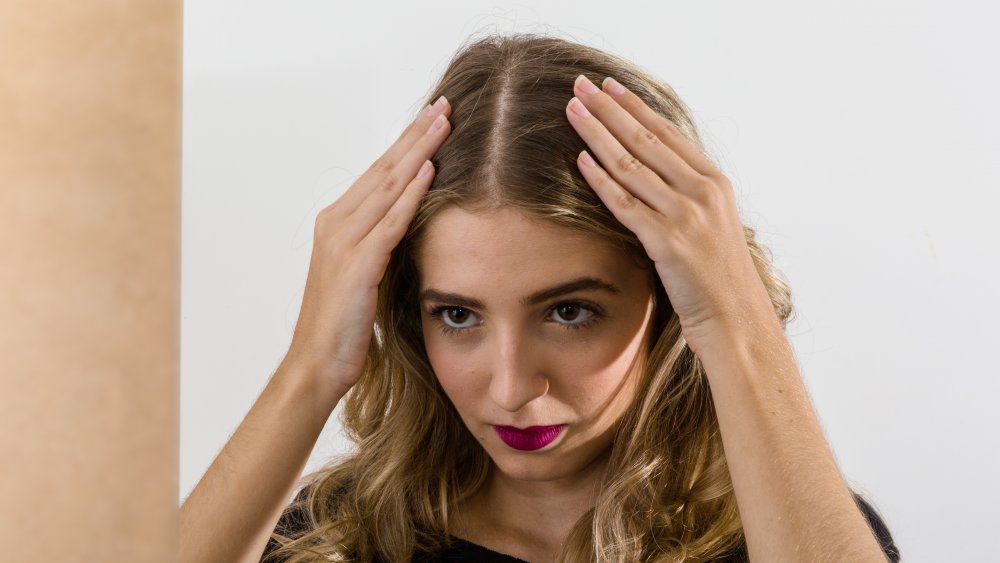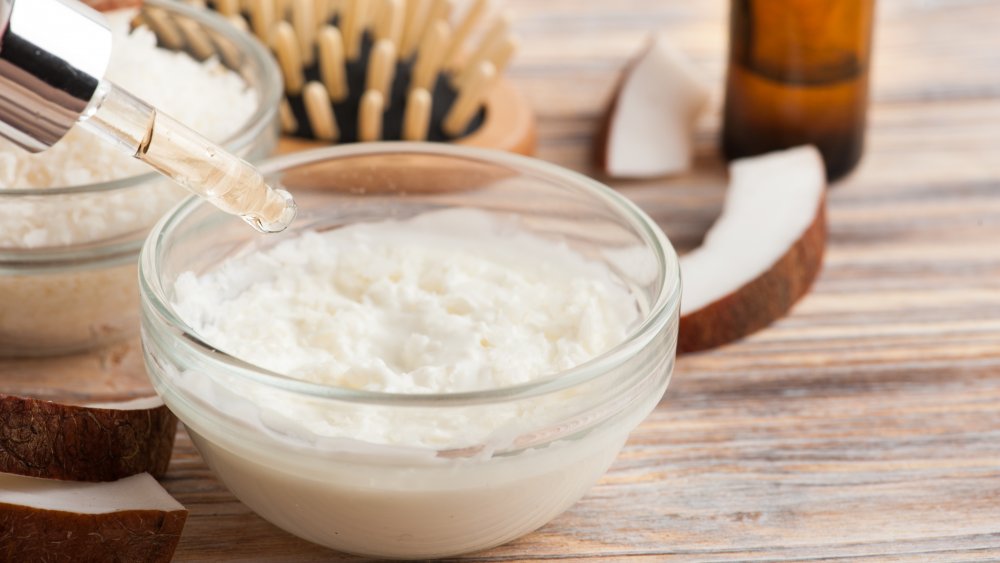The Best And Worst Natural Remedies For Dandruff
If you're someone who suffers from dandruff, you're probably (and understandably) always on the lookout for the next best dandruff treatment. If not, you could experience it in the future, so it's always good to be aware of what natural remedies are available and, more importantly, what does and doesn't work. But first, it's important to understand what causes dandruff in the first place. "Dandruff can refer to any condition that causes a dry, flaky scalp, but people with dandruff most commonly have a condition known as seborrheic dermatitis," dermatologic surgeon Sejal Shah, M.D., told Good Housekeeping.
When you search for how to treat dandruff, one of the most common natural remedies that appears is apple cider vinegar, but you'd be wise to completely avoid using it. While it does have some benefits, as Dr. Joshua Zeichner, director of cosmetic and clinical research at Mount Sinai Hospital's Department of Dermatology, told The Cut, apple cider vinegar will ultimately not cure, nor improve it. So much so, that Dr. Jessica Weiser of New York Dermatology Group does not recommend using apple cider vinegar for dandruff at all.
There are a few simple, natural ways to treat dandruff
Instead, Dr. Macrene Alexiades-Armenakas, a dermatologist in NYC, believes one of the simplest natural remedies is changing up your diet. "High-carb foods can result in the buildup of glycogen in the skin, which yeast feeds on," she told The Cut. Zeichner agrees, adding, "Although there's little data, the same foods that promote acne may exacerbate dandruff." Cut back on carbs and see if you notice a difference.
Weiser, on the other hand, claims oil treatments are the way to go, especially coconut oil. "Oil-based treatments can help to balance some of the scalp's excessive oil production," she told The Cut. "Applying oils to the scalp will help draw oils from it and remove them. It's the classic law of attraction, where like substances attract each other."
Like most skin conditions, if symptoms persist, see a doctor.

